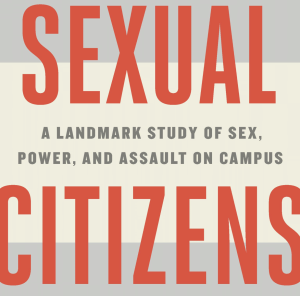Sexual Citizens: A Landmark Study of Sex, Power, and Assault on Campus

- Jennifer Hirsch, Professor and Deputy Chair for Doctoral Studies, Department of Sociomedical Sciences, Mailman School of Public Health; Co-Director, Columbia Population Research Center; Columbia University
- Shamus Khan, Professor and Chair, Department of Sociology, Columbia University
with respondents:
- Abdul El-Sayed, MD, DPhil, physician, epidemiologist, public health expert, and progressive activist
- Kamaria B. Porter, Ph.D. Candidate, Center for the Study of Higher & Postsecondary Education; Research Assistant, Department of Sociology; University of Michigan

The fear of campus sexual assault has become an inextricable part of the college experience. But why is sexual assault such a common feature of college life? And what can be done to prevent it? Drawing on the Sexual Health Initiative to Foster Transformation (SHIFT) at Columbia University, the most comprehensive study of sexual assault on a campus to date, Jennifer S. Hirsch and Shamus Khan’s new book presents an entirely new framework that emphasizes sexual assault’s social roots, transcending current debates about consent, predators in a “hunting ground,” and the dangers of hooking up.
Based on years of research interviewing and observing college life―with students of different races, genders, sexual orientations, and socioeconomic backgrounds―Hirsch and Khan’s study reveals the social ecosystem that makes sexual assault so predictable, explaining how physical spaces, alcohol, peer groups, and cultural norms influence young people’s experiences and interpretations of both sex and sexual assault.
Book sales and signing, courtesy of Literati Bookstore, will follow in the Assembly Hall.
Cosponsors: Sexual Assault Prevention and Awareness Center (SAPAC), Departments of American Culture, Sociology, Women’s Studies, School of Education, CEW+ Frances and Sydney Lewis Visiting Leaders Fund
